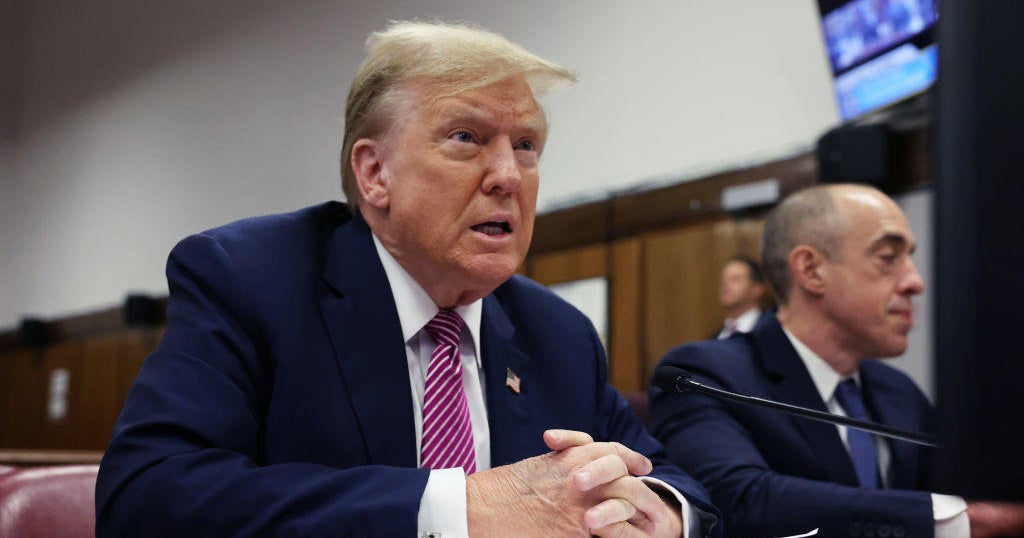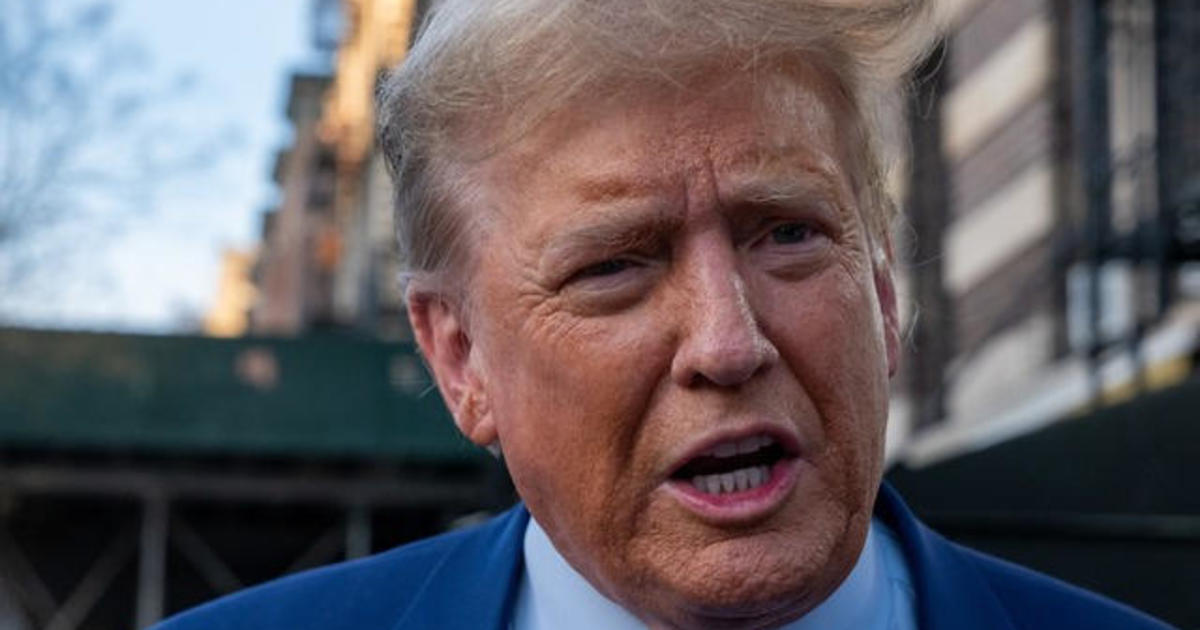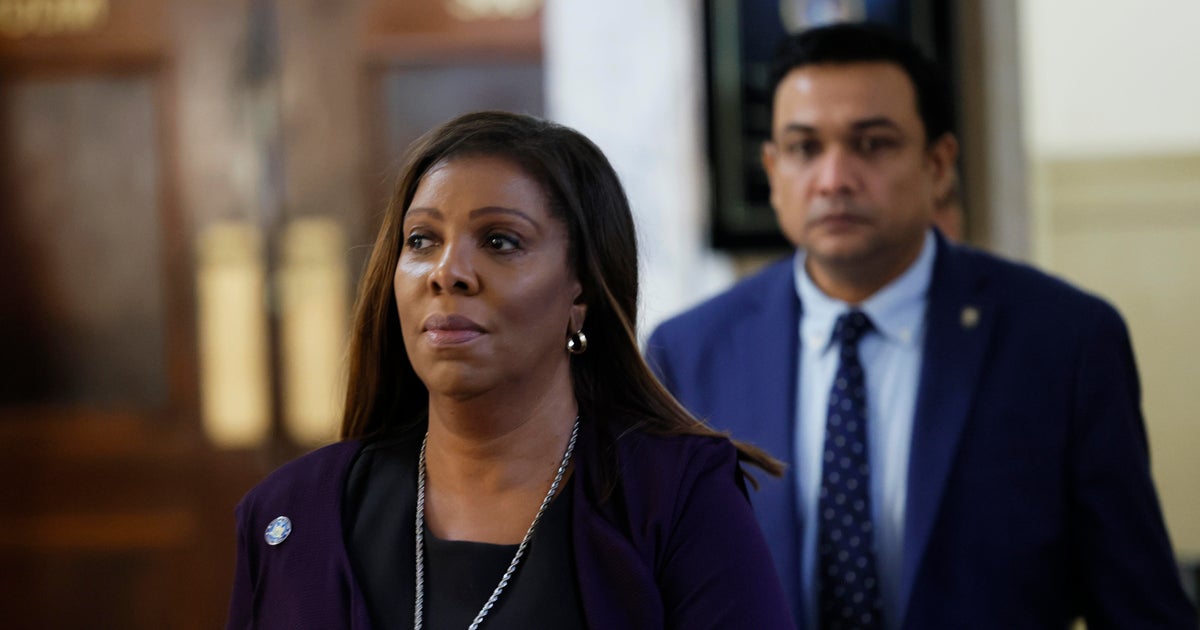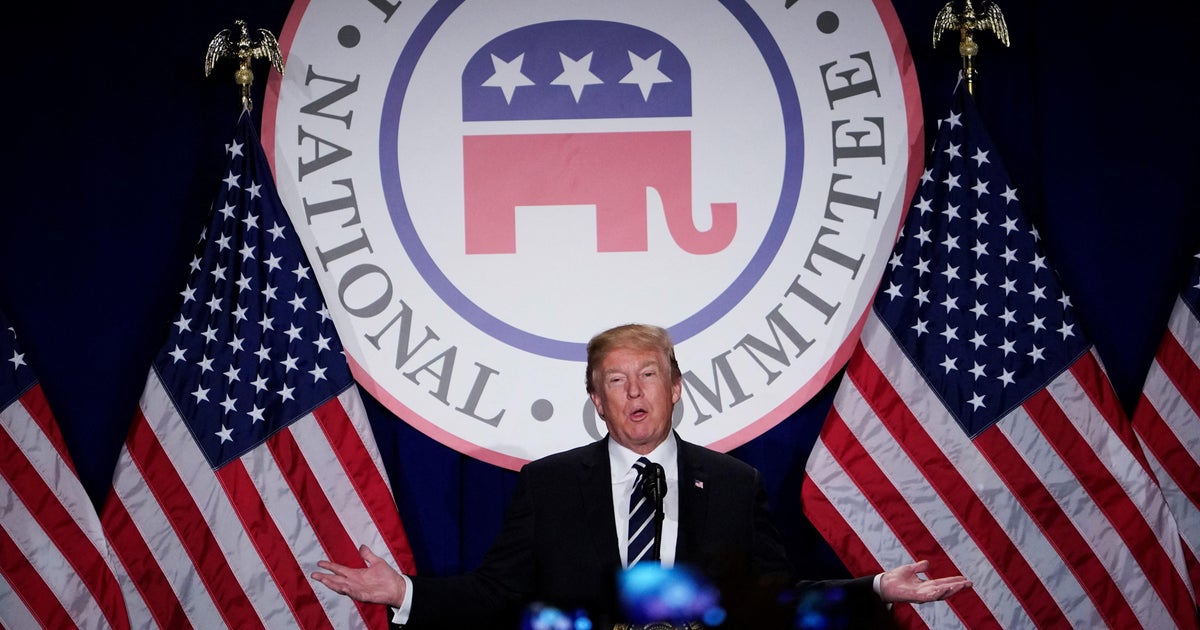John Dickerson: The first step was a doozy
Donald Trump went for it on inauguration day. He was true to himself and his voters and his promise to blow up Washington. For a man who understands the power of symbols and show, he didn’t offer the expected ones, which was its own act of showmanship. He was not anesthetized by a day made to sooth the feelings of the losers in the election. He gave them little. And he called out the politicians sitting just a few feet away for selling out the people through their venality, even though they had just rested their hands from applauding him.
This kind of risk-taking and boldness are ingredients for greatness. President Trump’s approach offers the possibility of undermining his opposition through a series of clarifying fights and building a new coalition. But if that’s Trump’s intent, his choice not to make an appeal beyond his base was illogical. It was out of sync with his revolutionary experiment and denied him a tool in addressing his concerns about being labeled illegitimate.
The weakness in president Trump’s approach could be seen immediately. Day One his administration was focused on his legitimacy. Though President Trump has a busy agenda and moved immediately to dismantle the Affordable Care Act, his press secretary held his first briefing room event not on any of his revolutionary moves, but to argue (against the facts) about the issue of his inaugural crowd size. The president also diverted to this topic at some length on his first day during his visit to the CIA.
The Trump team says the fight they picked over crowd size was about holding the press accountable. In truth, it was about diverting from the opposition marches taking place across the country Saturday. But the crowd size debate was also about legitimacy, which appears to be a fixation of the new president. President Trump refused to believe the Russians tried to meddle in the campaign, for fear it would call his victory into question. He is visibly irritated about having lost the popular vote and regularly overstates the nature of his victory. Wednesday at the White House, for example, he was repeating the evidence-free claim that 3 to 5 million illegal votes caused him to lose the popular vote.
There are no challenges to his legitimacy. He is the president. Still, he guards this account vigilantly. The risk is that when you relentlessly assert your legitimacy it can backfire. If you have to keep asserting it, perhaps your legitimacy really is in question. The best you can do with relentless assertion is fight the world to a draw.
There is another way: act like a president for all the people. Instead of asserting legitimacy, build it and show it. President Trump could have done that on inauguration day.
This is a challenge larger than just one day. Donald Trump built something extraordinary to get to the White House. The question is whether he can build anything bigger as a president of the entire nation. That’s what he’ll need to sustain him when a surprise event puts him on the ropes as it does all presidents -- it’s also what he’ll need to get sixty votes to pass his legislation in the Senate.
The inaugural address was a special opportunity. He made a pitch that he was the people’s president. He says he hears things that the elites miss. But there was nothing in his speech that suggests he has heard anything from those outside his base. When people don’t think a president is listening they hear him say “get in line” and they resist. This is among the things that irritated President Obama’s critics.
This is not about coddling snowflakes. This is about politics: adding people to your movement. For a politician making a third way, he needs converts. Why not take a chance then, during your big national moment, and show your detractors you hear them? In a year when not hearing and living in a bubble is a capital sin, it would seem like a president wouldn’t leave any doubt in his inauguration whether he hears all Americans.
He had another option that he also didn’t take. He could have nodded to those who worry that a norm-breaking president will break too many norms. Trump’s adviser Steve Bannon said Trump’s speech was Jacksonian, but Andrew Jackson’s inaugural address shows the precise ways in which Trump took a different route.
Jackson showed humility about his new post, repeatedly referring to the limits he would follow as president: “I shall keep steadily in view the limitations as well as the extent of the Executive power.” He said he was “animated by a proper respect,” and praised the “sentiment of conciliation, and spirit of compromise.” How conciliatory was he? The famous warrior in Indian combat even showed deference to Native Americans, promising “humane and considerate attention to their rights and their wants which is consistent with the habits of our Government and the feelings of our people.”
The rallying point President Trump chose was a new nationalism and patriotism. “At the bedrock of our politics will be a total allegiance to the United States of America, and through our loyalty to our country, we will rediscover our loyalty to each other.”
It’s an interesting theory of human behavior, but it’s hard to argue that simple patriotism will bring unity in our present political moment. The people who felt such joyon Friday at Trump’s inauguration attended the ceremony as a sign of their love for America, and the people who protested Donald Trump on Saturday all over the country did so because they love America, too. Patriotism isn’t going to bring them together, and if you declare your way to be the patriotic way you’re going to drive people apart.
Elections are a debate about America. They invite splits over the idea of patriotism and what it means. Inaugurations are designed to rebuild, but they require more than simple assertion-- we must all be patriots-- because if simple assertion were enough,the new president would have already convinced everyone with his campaign assertions. A president must seek unity through appeals to basic human qualities that connect all Americans.
Donald Trump quoted from the bible to make his unity case. “How good and pleasant it is when God’s people live together in unity.” But why stop there? The Good Book actually has some clues for aspiring inauguration speechwriters about how to create that unity. Peter doesn’t talk about allegiance to America, but puts it this way: “Finally, all of you, be like-minded, be sympathetic, love one another, be compassionate and humble.”
Before President Trump’s address, many thought Nixon’s first inaugural would be a good template for him. It contained the same dark notes Trump sounded during his campaign-- during a time in American history that was darker-- but Nixon sought to build unity from those same human qualities that Peter advised were the route to unity. “When we listen to the better angels of our nature,” said Nixon channeling Lincoln’s first inaugural address, “we find that they celebrate the simple things, the basic things-- such as goodness, decency, love, kindness.”
Had President Trump tried either of those gambits it might have made arguing about crowd size easier. Faced with questions about crowd size, his advisers could have reiterated how the numbers didn’t matter because he sought to be president for all the people. That would have been more than a simple assertion. They could have pointed to a speech that used any of the available and traditional tropes of national bond-building. Since the crowd size debate was also an effort to distract from the Saturdayopposition marches, this messaging would have been helpful in that context, too.
If you’re going to drive a righteous wedge between the people and the politicians, it helps to have as many people on your side as possible when you are fighting in their name. Inauguration rhetoric obviously isn’t going to convert your opponents, but acting like you are president for all the people gives you a tool to rebut those who say you aren’t, keeps your political opponents guessing and maybe lays the groundwork for eventually expanding your base. If Donald Trump did not choose to do that in a venue where tradition and custom and his predecessors made it an easy trick to pull, when will he do it? Perhaps the bigger question is whether he wants to convert anyone at all.




